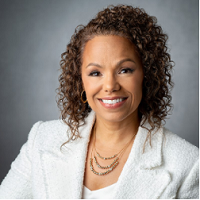Reframe workforce challenges as opportunities

As HFMA Chair, I’ve asked you to consider what defined our industry, society and Association before the pandemic and then challenged us all to own how we will define after. Well, millions of people are doing exactly that for themselves.
It’s called the “Great Resignation,” a term coined by Professor Anthony Klotz of Texas A&M University, who predicted numerous people leaving their jobs once there were signs of pandemic recovery. It turns out Klotz was right as millions are making bold decisions to resign, anticipating something brighter and better.
Reasons for this exodus run the gamut. While many have chosen to retire early, workers also have left for better pay, better benefits or permanent remote work, or maybe even for the chance to work for a mission-driven organization once out of reach due to location but now feasible thanks to remote work opportunities.
While positive for these individuals — and maybe that includes you — the ramifications are challenging for organizations. Notwithstanding, in much the same way that individuals are choosing to redefine their “after” narrative, I think we employers can take the same opportunity. Can we redefine our workplaces to better attract and retain talent?
HFMA’s Healthcare 2030: Workforce of the Future publication explores how we can simultaneously leverage technology to automate administrative tasks, while also taking advantage of a larger, more empowered and diverse talent pool. According to John Bluford, president and founder of the Bluford Healthcare Leadership Institute, most health systems have failed until now to make the connection between diversity in the C-suite and the social determinants of health that drive disparities. A diverse workforce is a meaningful step toward remedying years of inaction to reduce racial and ethnic health disparities, and taking that step provides a viable path to success in an era of value-based care.
A recent episode of HFMA’s “Voices in Healthcare Finance” podcast featured Joe DeLoss, a social entrepreneur and restaurant owner. While not in healthcare, Joe offers valuable lessons. He has taken the challenge to meet people exactly where they are, and he has challenged me to think differently about what benefits really mean. A robust 401k package might not be as attractive to some hourly workers as transportation benefits. A generous education benefit package might help attract a younger talent pool but not be as relevant for more senior roles.
And what about that which eats strategy for breakfast — culture? Here at nThrive, while we’ve been certified as a “Great Place to Work” for five years in a row, we remain laser focused on improving the colleague experience, because we believe we can be better. The executive leadership team is always challenging how we can better engage our colleagues, leverage technology to reduce work effort and provide opportunities for growth.
Workforce issues will have material financial implications in our post-pandemic world. My hope is that you will boldly take advantage of opportunities to be better when you can and also use this issue as a means to facilitate good dialogue in your HFMA Chapters and organizations.
Happy spring, ya’ll!





